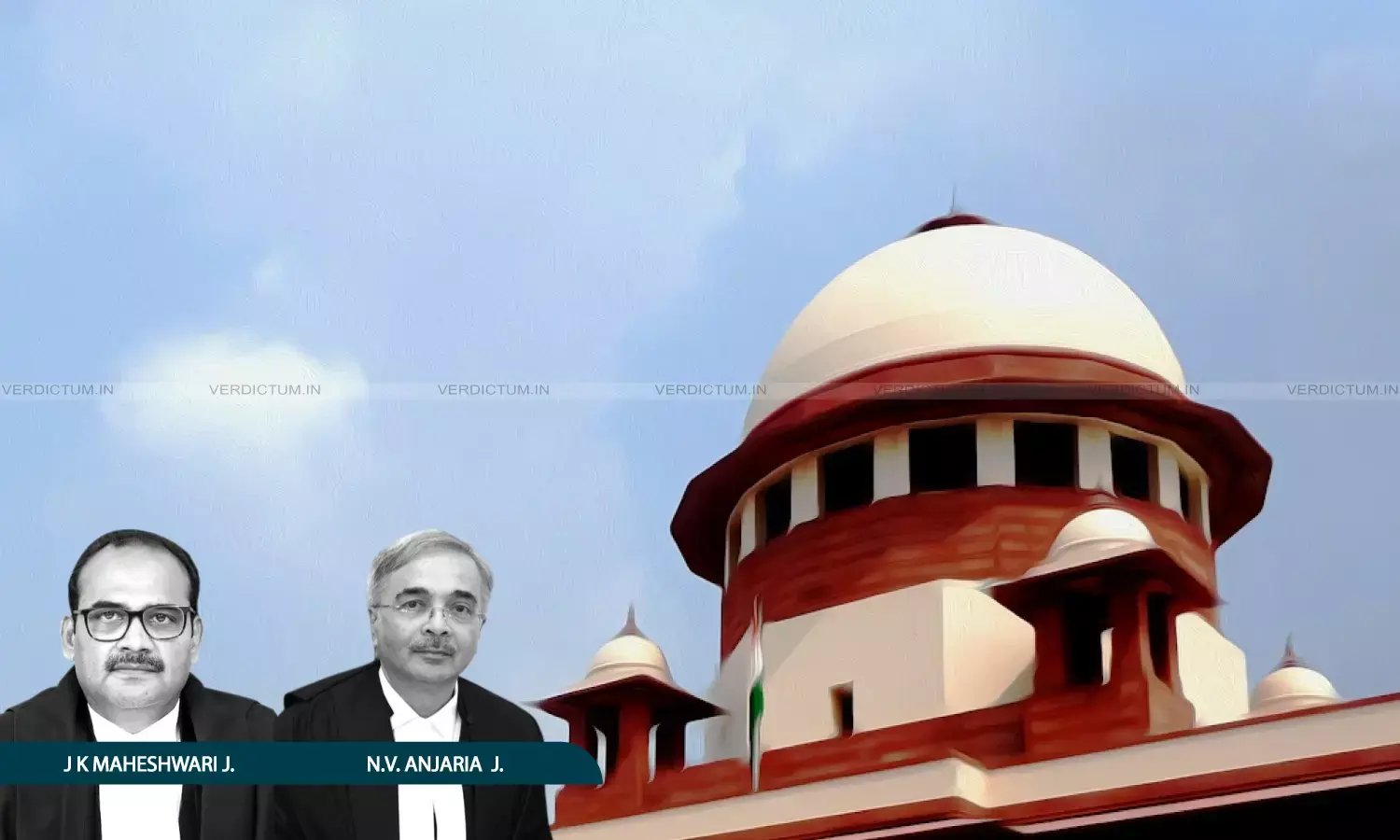Supreme Court Seeks Explanation From Madras High Court Over Handling Of Petitions Related To Karur Stampede Incident
The Apex Court directed the Registrar (Judicial) of the Madras High Court to furnish an explanation on how petitions seeking guidelines for political rallies were registered under the criminal writ jurisdiction, and not treated as public interest litigations and placed before an appropriate Bench.

The Supreme Court, while disposing petitions arising out of the Karur stampede incident in Tamil Nadu, expressed serious concern over handling of related cases and sought an explanation on the same from the Madras High Court.
The Apex Court was hearing a batch of special leave petitions challenging various orders of the Madras High Court concerning the investigation and administrative response to the stampede that occurred during a political rally organised by the Tamilaga Vettri Kazhagam (TVK).
Seeking an explanation from the High Court, a Bench comprising Justice J.K. Maheshwari and Justice N.V. Anjaria observed that “it is required to be explained by the High Court that a writ petition praying for the formation of SOP / Guidelines for the rallies of political parties and roadshows, how far it would fall within the jurisdiction of Writ Petition (Criminal).”
Background
Several writ petitions were filed before the Madras High Court in the aftermath of the Karur stampede, seeking varied reliefs, including a direction for a CBI investigation and the formulation of safety protocols for large public gatherings.
While the Madurai Bench was already seized of these matters, the Principal Seat of the High Court also entertained criminal writ petitions concerning the same issue.
The Supreme Court noted that a writ petition was originally filed by the TVK before the Principal Seat seeking permission for political rallies. However, the Single Judge, by an interim order, directed the State to frame guidelines for collecting security deposits from political parties conducting public events.
Subsequently, another writ petition was filed seeking the formation of an SOP for rallies and roadshows, in which the Single Judge took suo motu cognisance and expanded the scope of the petition to constitute a Special Investigation Team (SIT), even though the matter of investigation was already pending before the Madurai Bench.
Court’s Observation
The Supreme Court held that the petitions concerning the formulation of SOPs and guidelines for political rallies, which affected the general public at large, should have been treated as public interest litigations and heard by a Division Bench, rather than under the criminal writ jurisdiction.
The Bench further noted that “the learned Single Judges of the Main Seat of the Madras High Court entertained the writ petitions for the prayers which were not made in the writ petitions, and expanded the scope without any foundation in pleadings.” It was observed that there was no occasion for a Single Judge at the Principal Seat to entertain such petitions while similar matters were already pending before the Division Bench at the Madurai Bench, within whose jurisdiction the incident occurred.
Directing the High Court to provide a detailed explanation, the Bench stated that “it shall also be explained that in WP Crl. No. 884 of 2025 which was filed for different relief but as per the orders of the High Court it was kept pending for formation of the SOP/guidelines, why the said matter was not treated as Public Interest Litigation (PIL) and whether it will be listed before the learned Single Judge or the Division Bench.”
The Supreme Court further directed that “an explanation in that regard be furnished by the Registrar (Judicial) of the High Court bringing this order in the knowledge of Hon’ble the Chief Justice of the High Court.”
The Bench noted that the orders passed by the Single Judge and the Division Bench reflected a procedural overlap, with one court declining CBI investigation on the ground that police action was adequate, and the other forming an SIT citing dissatisfaction with the same investigation.
Such contradictory directions, the Court observed, “prima facie indicate the lack of sensitivity and propriety to deal with such a matter, creating multiplicity of proceedings, for the reasons best known to the Hon’ble Judges.”
Conclusion
After examining the procedural irregularities, the Supreme Court directed the Madras High Court to submit a report explaining the registration and handling of the writ petitions concerning the Karur Stampede.
While addressing the broader issue, the Supreme Court has ordered that the CBI take over the probe into the Karur stampede case, observing that the incident “has shaken the national conscience” and that “fair investigation is the right of a citizen.”
It further constituted a three-member Supervisory Committee headed by former Supreme Court Judge Justice Ajay Rastogi (Retd.), to oversee the CBI investigation, ensuring transparency and independence.
The matter will be taken up again after the filing of counter-affidavits by the respondents.
Cause Title: Tamilaga Vettri Kazhagam v. P.H. Dinesh and Others (Neutral Citation: 2025 INSC 1224)


